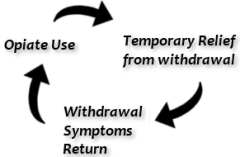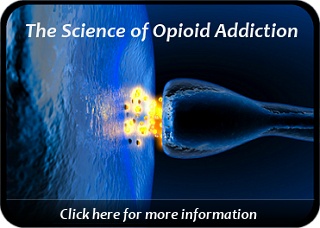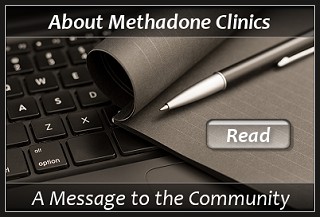|
1. How does methadone work? Methadone is a synthetic opioid that binds to the opiate receptors in the brain. This binding process helps to eliminate opiate withdrawal symptoms, relieve opiate withdrawal sickness, and block the effects of illicit opiate use. 2. How is methadone different from other opiates/opioids like vicodin, heroin, morphine, percocet, or dilaudid? Methadone is a slow acting, yet long lasting medication that stays in the system for a much longer duration than fast acting opioids. Fast acting opioids spike quickly, but their effect does not last long. For the opiate dependent individual, this up/down effect creates a painful cycle of temporary relief followed by withdrawal sickness.
3. Is methadone safe? Are there any side effects? Yes, methadone is safe when taken as prescribed, and has been in use as a primary addiction treatment for over 40 years. Some clients may experience side effects like constipation or increased sweating. However, these side effects often disappear once a client becomes accustomed to their methadone dose. 4. Will physical dependency continue while taking methadone? Yes, methadone is an opioid replacement therapy and physical dependency will still exist. However, clients will have a new opportunity to restore their lives, and may choose to taper off of methadone once their lives are stable. 5. Can someone possibly overdose by taking too much methadone? It is possible for an individual to overdose on methadone and overdose can be fatal. Mixing methadone with other sedatives or pain medications should never be attempted without first consulting with a physician. 6. Does methadone damage tissues or erode your teeth? Medical studies indicate that methadone does not harm the body's tissues and does not produce tooth decay. Dental problems experienced by recovering people are usually the result of accumulated health neglect that occurred during the active addiction period. 7. Is it safe for a pregnant mother to take methadone? Yes, it is considered safe for a pregnant mother to receive methadone. There is consensus that methadone can be safely administered during pregnancy with little risk to mother and infant. In fact, many medical professionals prefer that an opiate dependent mother receive opiate replacement therapy because her body will not be stressed by repetitive withdrawal symptoms. The mother will be at lowered risk for infectious disease, pregnancy complications, and miscarriage. Additionally, mothers in methadone treatment will typically receive much more support and guidance as they prepare for motherhood.
8. If I miss a methadone dose, will I become sick? This varies from person to person. Many clients report not feeling sick if they miss a dose. Methadone has a much longer half life than most other opioid medications, and therefore is present & active in the body well beyond a 24 hour period. For this reason, some clients remain comfortable and without withdrawal symptoms following a single missed dose. However, the metabolism of each person is different, and some clients may in fact begin to experience the onset of withdrawal if they miss a dose. It is always best to plan for daily dosing and to avoid missing a dose if at all possible. 9. What if I need to travel? How can I receive methadone? There are several options for methadone clients who need to travel.
10. What is counseling like? What issues get addressed in counseling sessions? Counseling is usually provided in most methadone treatment clinics through individual sessions, family sessions, or group therapy sessions. The purpose of counseling is to provide a client with new knowledge, new skills, and the means to remain drug-free while achieving a better quality of life. Below is a brief description of various counseling settings: A. Individual Session – This is a private meeting between you and your counselor. Any and all issues that are important to your recovery can be addressed here. You are free to express your thoughts, feelings, and needs, and are supported in developing personalized approaches to problem-solving while also utilizing your counselor's input & perspective. Identifying options & solutions is a frequent focus of individual counseling sessions. Remaining drug-free and avoiding relapse are obviously important topics for discussion. B. Family Session – This is a session which consists of you, your counselor, and one or more of your supports. Although it's often called a "family session", it can include anyone you deem as important to you as a support. And may actually not include family at all. A more technical title for this meeting is "conjoint session" meaning you and another person(s). These sessions often deal with issues of communication, rebuilding trust, and setting boundaries & expectations. But may also address development of a relapse prevention plan, or any other variety of issues that you identify as important to your recovery. C. Group Session – Group counseling sessions include you, other methadone program clients, and a group facilitator. Being a member of a group allows for unique growth & educational experiences that can be instrumental in furthering your personal recovery. Group members are free to bring personal issues to the group for discussion. Peers in a group can provide valuable feedback and support to their co-members. This often produces a range of answers & options that otherwise may have never been discovered. In other words, the benefit of others' experience helps greatly in the recovery process.
11. Will my participation in a methadone program be kept private? Yes, it will. Treatment programs operate in accordance with confidentiality laws that protect your status as a methadone client. You will decide who is to receive information about your participation in treatment. Some consents for release of information may be desirable such as to a legal professional, family member, or your primary care doctor. 12. What about negative hype? I've heard some negative things in the media about methadone. There are those within the book publishing and television industry who attempt to profit by using scare tactics & sensationalism in reference to methadone. This deliberate exploitation has resulted in an unfortunate, often one-sided portrayal of methadone as a bad medication, and methadone clients as bad people. Such views are distortions and misrepresentations. Historically, there are indeed sad, heart-breaking stories of individuals who have died while consuming methadone. This is also true for many other commonly prescribed medications which have medicinal benefit, but that were abused or taken improperly. The reality is that methadone treatment has saved lives, and enriched lives, beyond measure. Methadone is a medically-approved treatment for a reason. That reason being that it is highly effective, and has saved many in society from certain tragedy. A majority of the reported deaths (in which methadone was mentioned) involved the simultaneous use or abuse of other drugs, or the use of methadone by individuals who had obtained it wrongfully. What some critics fail to acknowledge is that without methadone treatment, many individuals would have died in active addiction as victims of murder, heroin overdose, infectious disease, accidents, and a long list of other devastating consequences. The most responsible position on methadone is that it is a medication which has been a life saving medical intervention for many thousands of recovering persons. Countless individuals and families from around the world are benefiting today, and everyday, from methadone maintenance treatment. Methadone must be regulated, properly managed and properly utilized. When this happens, the results are irrefutably positive. |
Read Dr. Burson's Blog on Opioid Addiction & Medication Assisted Treatment. Inspiring, Thoughtful, and Informative! |

 Methadone Questions and Answers
Methadone Questions and Answers




